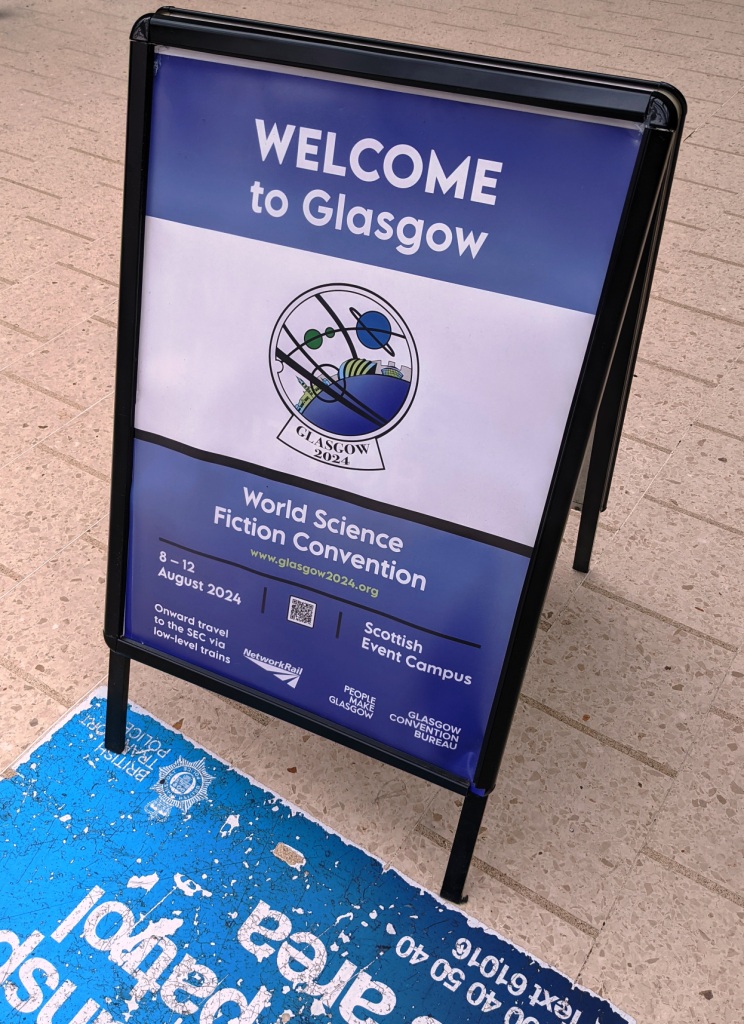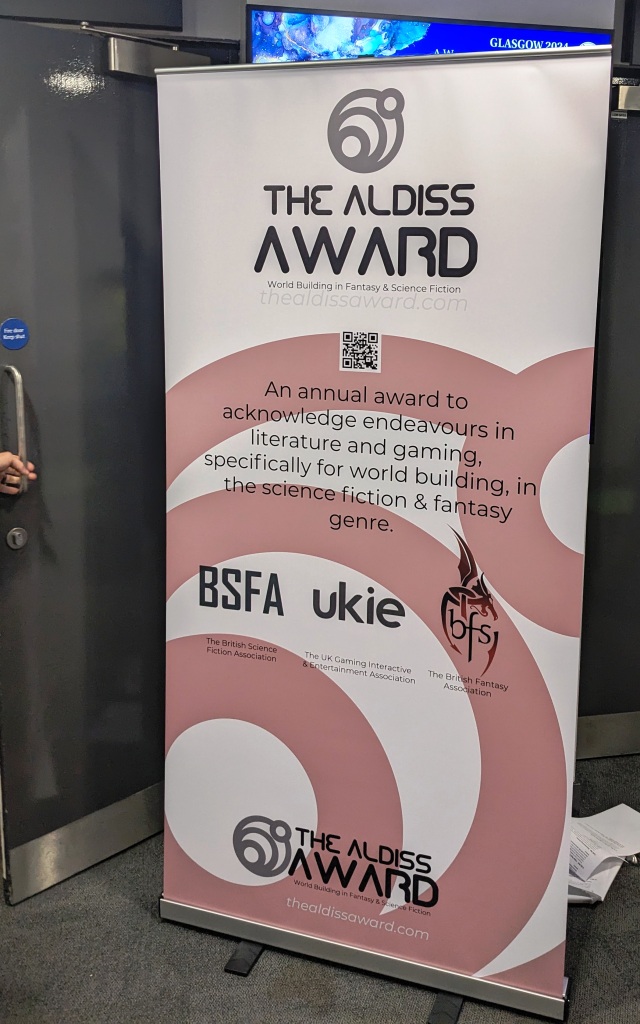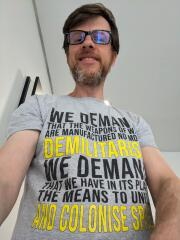|
I swiftly decided the odds of me penetrating the mass of interlocking networks, friendships and 'Vonnegut-style karasses' (a group linked by the cosmologically significant) that made up the heart of Worldcon were next to zero. So, instead, I made the best use of my position at the margins: I worked the heck out of the formal programme, made myself useful as a Discord volunteer for several panels (to help those registered for the convention online), explored, people-watched, investigated the stalls, exhibitions and the vast dealers hall, checked the vibe. I even met a few fellow lone explorers like me to compare notes.
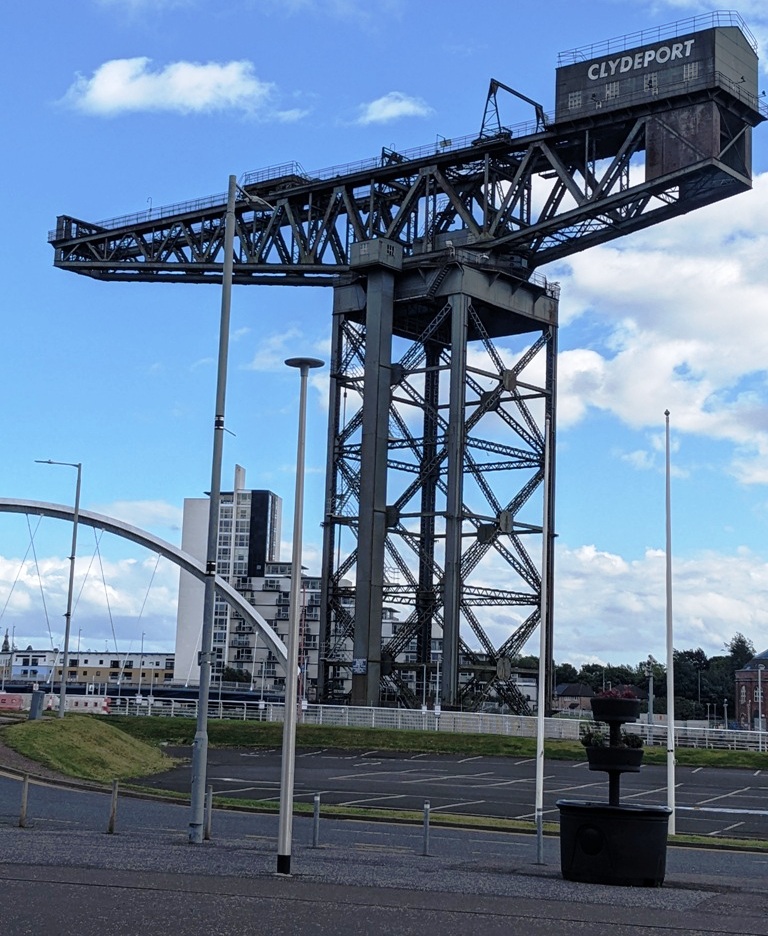 Glasgow's industrial heritage crane, outside the Worldcon venue.
Glasgow's industrial heritage crane, outside the Worldcon venue.
And so had a very good time indeed! It was enough to confirm my sense that that there was a tremendously rich community here, with a lot of time going into events like Worldcon which maintain, nurture and renew it.
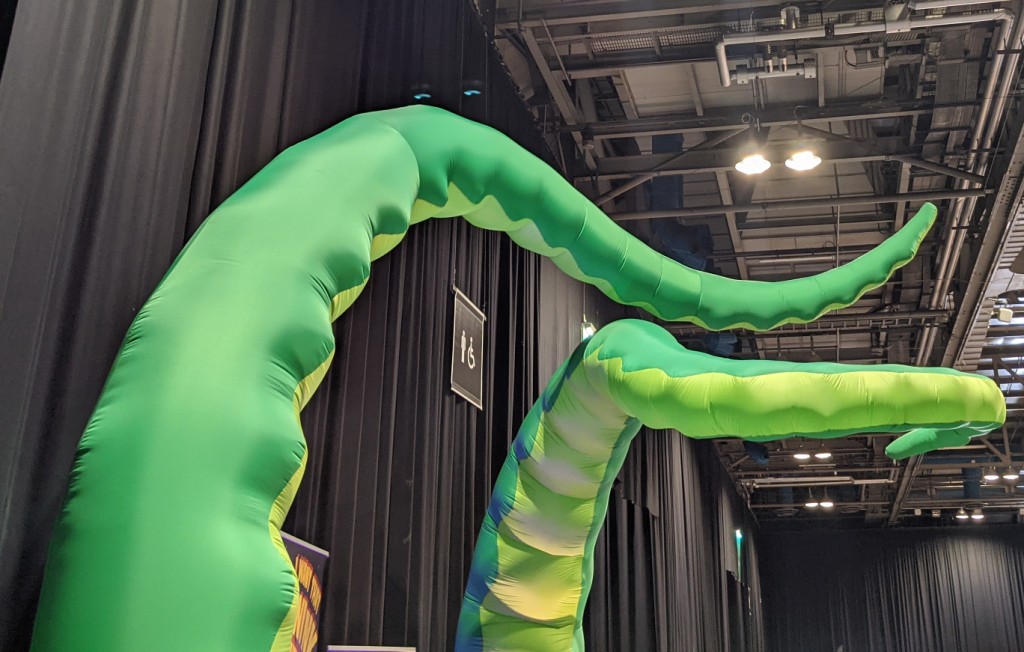 The dealers hall wall had tentacles.
The dealers hall wall had tentacles.
The emphasis on renewal here is crucial – the number of young people there was really heartening, as was the explicit emphasis on celebrating the diversity of the fannish movement. Guests like the Three Black Halflings podcasters (two of whom along with other guests improvised their way through a very funny tabletop D&D game on stage on Friday night) were a great addition to the programme.
With a couple of exceptions, I managed to get into all the sessions I aimed for. A few (such as a panel on Government featuring Arkady Martine) were oversubscribed for the rooms they were assigned to, but getting that right all the time is an impossible task.
And even in those situations it was easy enough to pivot to an alternative, given that the number of sessions running at the same time. There were more than 900 to choose from over the course of the event, with strong scientific and academic tracks alongside more accessible subjects such as table-top role-playing and parenting within fandom.
Here are my personal highlights (which should give you a flavour of the content):
Readings: one of the reasons I came to Worldcon was to see some of my favourite authors read from their work. Doing a reading well is a performance art and John Scalzi and Charles Stross did not disappoint.
|
